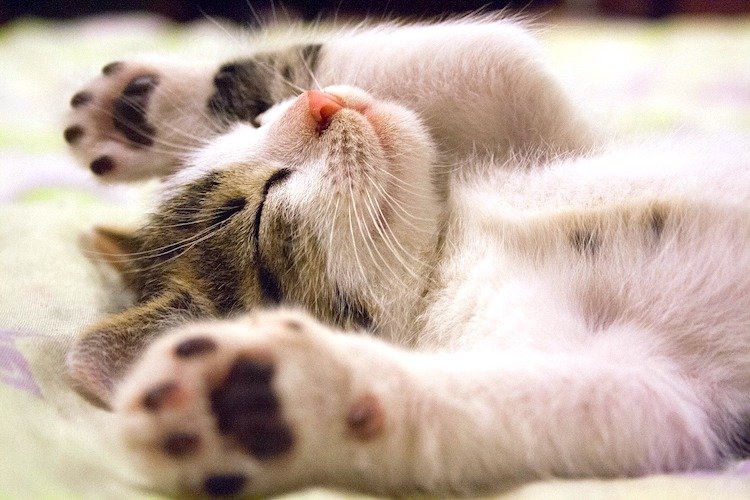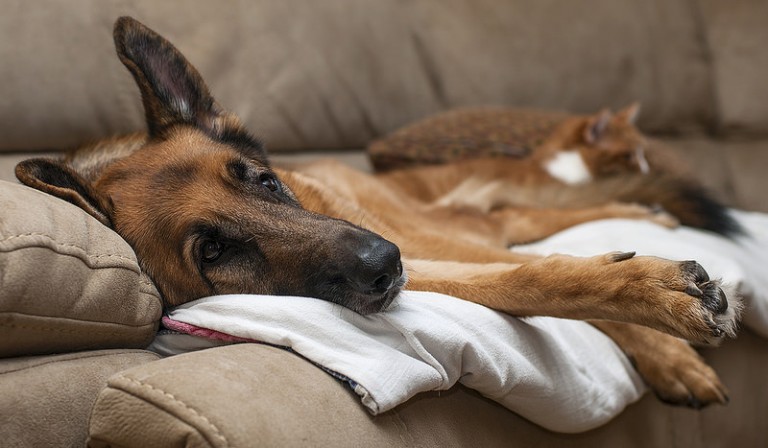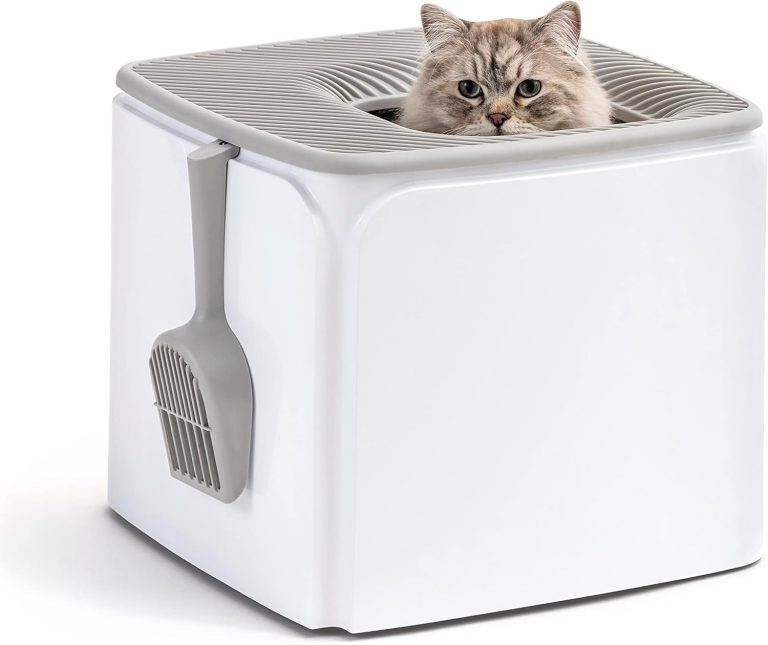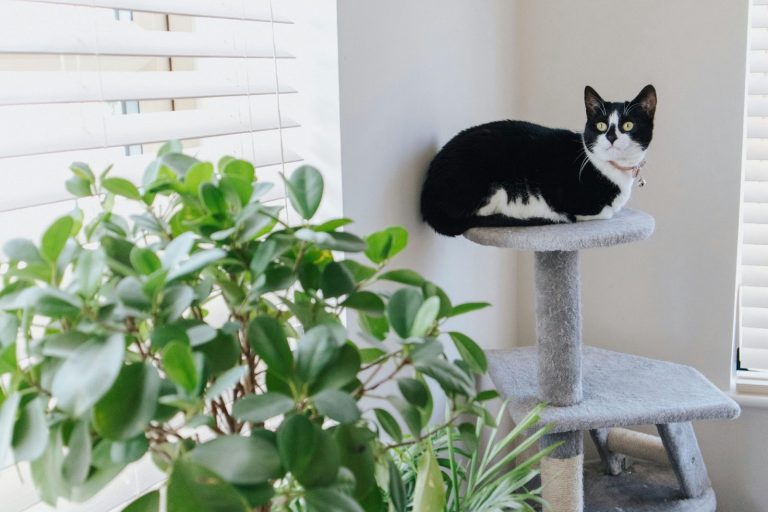What Does It Mean When a Kitten Is Eating Litter?
Young kittens like to put things in their mouth. Sometimes that might mean a kitten is eating cat litter. Here are a few thoughts on what might be going on.

A kitten eating litter: Is this just feline curiosity, or could it be a cry for help?
One of the many wonderful things about cats is how clean they are. Contrast litter training a kitten with house-training a puppy, and the effort is the difference between taking the elevator and walking up several flights of stairs.
But what if a kitten visits the litter box for something other than toileting? Is a kitten eating litter anything to worry about? The answer isn’t straightforward because it may just be kittenish curiosity — or it could be a not-to-be-missed sign of ill health.

Don’t leave your pet’s safety to chance
Sign up for Petful recall alerts today.

Why Do Some Kittens Eat Cat Litter?
There are 2 main reasons a cat or kitten eats litter:
- Curiosity
- Pica
Sounds simple enough. Sadly, this isn’t the case. This is because “pica” is a symptom rather than an answer in its own right. Basically, pica refers to a bizarre craving to eat things that aren’t food.
Pica is a sign that the cat is either feeling unwell or is deficient in a vital nutrient. The act of eating litter doesn’t tell us what that illness or deficiency is, but it is a signal they need to be checked out by a veterinarian.
OK, so let’s tackle the simple things first: curiosity.

Curiosity
A young kitten has to learn about their world.
Just as young children put everything in their mouth, so do kittens. They explore by using all their senses, which include taste, and learning about kitty litter, meaning checking out if it’s good to eat.
As a rule of thumb, it’s not unusual for a kitten under 3 months of age to experiment with eating cat litter. The majority of kittens quickly realize that cat litter as a tasty treat is vastly overrated and drop the habit.
However, the innocent activity of a kitten eating litter is not without risk.
Clumping cat litter is a bad idea with a kitten in the house. The problem is that once eaten, clumping litter swells and sticks together in a lump inside the gut.
There’s a distinct risk of the clumped litter forming a plug, like a cork in a bottle, and causing serious bowel obstruction.
And we’re not talking constipation here, but a foreign body. It is a potentially serious condition that may need emergency surgery to correct. Surgery is high-risk because the kitten is so young and stitches can pull through the gut wall, causing life-threatening peritonitis.
Symptoms of a gut blockage include:
- Vomiting
- Poor appetite
- If the kitten eats, they can’t keep food down
- Weakness and lack of energy
- Dehydration
- A dull, starry coat
- Collapse
In truth, if you have a sick kitten, don’t attempt home diagnosis — get them seen by a vet right away.
So, the short answer for the worried pet parent with a kitten who keeps eating litter is to get their fluff ball checked by a vet … plus avoid the use of clumping cat litter.
Pica
When my mother was pregnant with me, she used to scratch the plaster off the wall in the under-stairs cupboard and eat it. This is an example of pica, or the craving for non-food substances.
For an expectant mother, pica is often due to the deficiency of a vital vitamin or mineral in the diet. For our cats, this can also be the case, but it also happens when they don’t feel well.
The problems most commonly linked to pica in cats include:
- Anemia
- Dietary deficiency
- Worms or internal parasites
- Kidney disease
Now, it’s important to put a sense of proportion on this. For starters, if a kitten eats litter, the probability of this being due to kidney disease is very low. Pica caused by health problems is more likely in an adult cat than a kitten. So, if your kitten is bright and playful, don’t panic — but if you’re worried, visit the vet.
Indeed, pica caused by ill health is often just one of a suite of clues, which include things such as drinking more, eating less, losing weight and lacking energy. For a kitten eating litter when they are otherwise well, the bigger worry is a bowel blockage. But for the full picture, let’s at a look in more detail.
Anemia
Anemia refers to a lack of red blood cells in the body. Blood cells carry oxygen round the body, giving it power, like gas in a car. Typically, signs of anemia are linked to lack of energy and include:
- Being tired all the time
- Wants to sleep rather than play
- Seems slow or dull
- Pale gums
But here’s the thing: Anemia happens because there’s a problem somewhere else. So for our car analogy, it might be that someone forgot to fuel the car, the fuel hose is blocked or there’s a hole in the tank.
Causes of anemia in cats include:
- A heavy flea or lice infestation (these parasites suck blood)
- Infection with the feline leukemia virus
- Bloodborne parasites, such as M. haemofelis
- Bone marrow problems
- Eating a toxin that damages red blood cells
- Kidney damage (be careful with lilies around cats and kittens, as contact with these flowers can be harmful to their kidneys)
From this, you can see why visiting the vet becomes important. If a kitten is anemic, tests may be needed to identify the root cause and correct it.
Dietary Deficiency
A growing kitten needs a good, well-balanced diet. There are all sorts of reasons this doesn’t always happen — for example, if they are offered adult cat food, dog food or a home-prepared diet that’s not nutritionally balanced.
The answer here is obvious enough: Make sure to feed a high-protein (but not too much meat), good-quality food that’s designed for kittens.
Worms and Internal Parasites
No one is sure why dogs eat grass, but one theory is to get rid of internal worms. This may also be the case with kittens eating cat litter, that something drives them to eat litter in an attempt to dislodge intestinal worms.
Kidney Disease
It is very unlikely (but not impossible) that a kitten would have kidney disease.
In older cats, it’s one of those bizarre quirks that obsessive eating of cat litter in seniors is as close as they can get to saying, “I don’t feel well. Please can you run blood tests?”
Symptoms of kidney disease in cats include:
- Drinking more
- Bigger puddles in the litter box
- Poor appetite
- Bad breath
- Sickness
- A dull, starry coat
- Weight loss

Kitten Eating Litter: A Checklist
Curiosity or cry for help?
First, ask yourself: “Does the kitten seem unwell?” and “Am I worried?”
If you answer “Yes” to either question, call your vet. At the very least, talk with someone with medical knowledge who can advise you if the kitten should be seen or not.
If the kitten is a furry dynamo, growing nicely, but just has a horrible habit of eating litter, then the following may be a good starting point:
- Switch to non-clumping cat litter.
- De-worm the kitten with a gentle but effective product (your vet can help with this).
- Feed a good-quality, well-balanced diet that is appropriate for their life stage — that is, kitten food made for a kitten.
If you aren’t sure, monitor the kitten carefully. Be alert for signs such as:
- Poor appetite
- Diarrhea
- Weight loss (weigh the kitten daily and write the number down to build up a log)
- Changes in behavior, such as going from lively to depressed
But when all’s said and done, young kittens are like toddlers — they like to put things in their mouth. Limit the risks by using non-clumping, nontoxic cat litter, and fingers crossed that a kitten eating litter is one bad habit they will grow out of.
In this video, the “Kitten Lady” gives some great tips on how to litter train young kittens:

References
- Brown, Scott A., VMD, PhD, DACVIM. “Renal Dysfunction in Small Animals.” Merck Veterinary Manual. https://www.msdvetmanual.com/urinary-system/noninfectious-diseases-of-the-urinary-system-in-small-animals/renal-dysfunction-in-small-animals.
- Marks, Steven L., BVSc, MRCVS, DACVIM (SAIM). “Anemia in Cats.” Merck Veterinary Manual. May 2018. https://www.merckvetmanual.com/cat-owners/blood-disorders-of-cats/anemia-in-cats.
- Weir, Malcolm, DVM, MPH, and Ernest Ward, DVM. “Anemia in Cats.” VCA Hospitals. 2019. https://vcahospitals.com/know-your-pet/anemia-in-cats.
- “Feline Leukemia Virus.” Cornell University College of Veterinary Medicine. May 2016. https://www.vet.cornell.edu/departments-centers-and-institutes/cornell-feline-health-center/health-information/feline-health-topics/feline-leukemia-virus.







